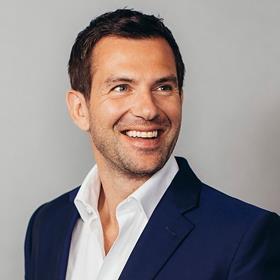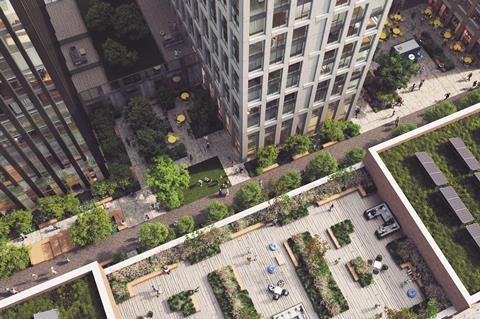It is no secret that the built environment is responsible for 40% of the world’s total energy and process-related emissions, and the clock is ticking on achieving net-zero carbon by 2050.

We must address this challenge as an industry, not in silos, which is why we have joined Footprint, an organisation that aims to address property’s zero-carbon challenge.
Our passion is creating places and spaces people want to call home. We invest in communities with a view to operating there long into the future. We want our communities to be vibrant, inclusive and sustainable places.
That requires weaving our long-term thinking into everything we do: choice of location and characteristics of the land; procurement and construction; the tech we put into our buildings; our operations and management; and the role we play in the communities we invest in.
We believe a sustainable building should have a sustainable location. All our sites are brownfield sites – recycled land given new purpose. They are accessible by the widest range of transport options so our residents can use footpaths, cycleways, transport hubs, car, and cycle clubs and their own vehicles.
This is not a tick box exercise, but an integral part of our thinking and we do all we can to augment the natural benefits of our locations. We offer bike cafés and purpose-built storage; car clubs so residents can minimise their environmental footprints; and electric car-charging hubs to futureproof our schemes.

The technology we use to furnish and manage space is also paramount. We opt for low-energy white goods and televisions courtesy of our brand collaboration with Samsung and make meaningful energy savings on heating, lighting, and the way we maintain and manage our buildings.
There is no right way to choose the tech we adopt; it is about the objectives you try to fulfil. Technology will continue to innovate and evolve, and as an operator, we must adopt a similar approach to the tech lifecycle, and ask what more can we do? What can we do better? And how do we build an even more sustainable place to live?
Our technology-enabled facilities management partner Utopi gives us the tools to extract valuable data from buildings, making them truly smart. When it comes to managing sustainability, you need to be able to monitor it using data, and control it using integrated technologies.
Using innovative software, we can reduce the carbon footprint of facilities management by remotely fixing issues instead of sending an engineer to site. Having a consistent blueprint for digital infrastructure across our developments allows us to not only improve energy consumption but also to enhance the user experience for residents.
Pushing boundaries
We’ll be adopting on site energy production in photovoltaic solar panels and battery storage as we look to push sustainable boundaries further with innovative renewable energy solutions in future developments. Our energy partner assists us with buying clean bulk energy, provided to our residents at a discount, ensuring heating of homes and water is done with financial sustainability and the health and wellbeing of the planet front of mind.
We can pull additional levers to align the management of our spaces with sustainability goals in relation to placement, design and construction. We removed single-use plastics in our public spaces and chose low-impact cleaning products and environmentally friendly chemicals. Consumers are increasingly interested in the ethics of companies, and as a lifestyle brand, we have a responsibility to deliver.
But it goes much deeper than this. There is an emerging movement of innovative, like-minded individuals joining forces to discuss how we can move towards a zero-carbon future.
Footprint is a collective of forward-thinking authorities, developers, investors, designers, consultants, and contractors collaborating to find economic, sustainable solutions that will shift UK planning policy and accelerate action against climate change. It is already being promoted by shadow minister Peter Kyle MP, Caroline Lucas MP and driven by renowned architects Emily Day and Tim Pyne, together with Sophie Law-Smith, the champion of Design Brighton.
The clock is ticking. Decision-makers in the built environment must act now, not tomorrow. Join us in reducing our footprint and help us achieve green, zero-carbon living for the generations of the future.
Johnny Caddick is managing director of Moda Living































No comments yet